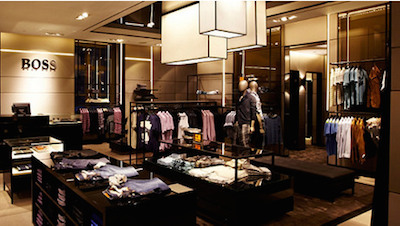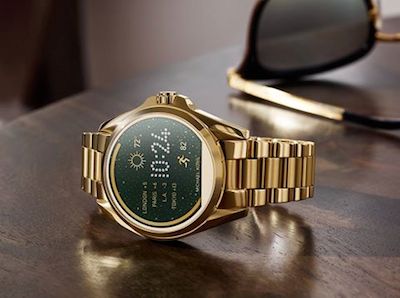The drastic shift in consumer behavior from the rapid evolution of technology has resulted in a 20 percent drop in customer spend with luxury brands, according to the Luxury Institute.
Luxury Institute’s "2016 State of the Luxury Industry" report shows that consumers are spending much less in the luxury market compared to two years ago, but luxury marketers will have an uphill battle to determine how to combat this. While digital and mobile avenues are vital to success for any retailer or brand, it seems that affluent consumers are interested more in shopping with luxury brands at bricks-and-mortar locations.
“The key takeaway of the report is that the luxury industry is going through a downturn and a revolution globally due to a set of macroeconomic and consumer habit changes, plus the effects of rapid technological innovations,” said Milton Pedraza, CEO of the Luxury Institute.
The report surveyed 3,900 affluent consumers from the U.S., U.K., Europe, Japan and China, all of which made higher than $150,000 USD, £60,000, EUR50,000, 1 million CNY and Japan ¥150 million.
Consumer habits
Luxury spending in the United States is ahead of many other countries, but the United Kingdom and Italy are leading the pack. The average spend within the luxury market in Italy is expected to be $17,660, $16,715 in the U.K. and $16,360 in the U.S.
Brands must now focus on how to properly balance ecommerce initiatives and in-store strategy to appeal to the modern affluent U.S. consumer. Bricks-and-mortar are making a slight comeback with 54 percent of high-net-worth individuals preferring to shop in store for luxury brands, compared to only 49 percent two years ago.

Social media is now the main avenue luxury fashion brands are using to communicate with consumers for customer service, with 58 percent leveraging Facebook Messenger, according to another report from L2.
Traditional customer service communication platforms are tired and outdated, and consumers now expect a more modern method for reaching out to brands and retailers. Many brands are taking note and launching communication methods on mobile messaging platforms such as Facebook Messenger, with 71 percent of watch and jewelry brands following suit (see more).
The growth of the luxury market is slowing, with only 19 percent of high-income individuals planning to spend more within the next year, compared to the 30 percent from two years ago.
While growth will slow, many U.S. consumers are still planning to spend on luxury goods and services. For instance, 92 percent of affluent consumers in the U.S. plan to spend money on luxury brands within the next 12 months.
The average anticipated spend per consumer is estimated to be $16,360, dropping almost $4,000 from $20,085 in 2014.
Luxury sectors
Watches, fine art, handbags, home appliances and jewelry are likely to be the areas hurt the most from the cut back. About 33 percent of consumers claiming to cutback on spend with watches, 28 percent on art, 24 percent on handbags and home appliances and 23 percent on jewelry.

However, travel remains as the dominating sector in which U.S. consumers with high incomes will be spending with luxury brands.
Hilton-owned Waldorf Astoria Hotels & Resorts climbed the ranks in terms of international brand awareness, despite consumers spending less time traveling, according to another report from Luxury Institute.
JW Marriott, InterContinental, Four Seasons, Grand Hyatt and The Ritz-Carlton maintained their places as the most visited hotel brands, reported last year and this year in the LBSI Global Hotel study. However, affluent consumers are cutting down on hotel stays with modest decrease in number of nights stayed (see more).
“The biggest surprise is that while ecommerce is critical to success in luxury, slightly more consumers still prefer the store experience,” Mr. Pedraza said. “Additionally luxury consumers are following less, not more, luxury brands on social media.
“As millennials mature they are recognizing that they have to focus on careers and relationships, not just social media,” he said.
{"ct":"FRYdAPi1NJ7v7Ttdb1cL0N0wD4KhufIyO8FN3ZJhM5CY7v5htQQYcf7WfT\/MyW7uQo53fDQLTCU05iJ7GI4uAXBU+rFbw50kFQ5gskLXGKmizwckgRzagp5CVSfZmvOHqA6bFpb55QjDnWs1nsPYuKtbPQd495RPWEY4kpMfTKeGr1Yn0iOX\/wg4oxbK2DmLx7m8JsVTIDMzC6X4ki+IMBbhmu9X5zIIqSVKUFKpwSFXus4M3VNjz5NREVdoAx09fnNKQNNLzKu+LWIJh5zoBWYFp+PL1cS2JoZbxcFrj+V6h5AlLrty9K4SAIP+PrYB+KgeOPkNRsOoI6aW\/z3r8pWcWDzQChvVengTa9OqBQCc8fF41KzwMaXhIUpqZAQnmDpEotxJHIe8zA97kr5jHLRTGfuDG0WM\/5bfKMHmHqruBvYlW5WaKYnFfmW3yIM1AwdJaDhl+c3Aa9uQlfogyLRU9w6jBpWdegU5nUIXy6rSTfPSPeiJ1++CeA1wr4kR754XSClhweMQEeiKjwjJcpU+oG5J4i+deY6eJfF2TWj\/vbcnwwhC18gTVoqXaAqFAIz4MrQPUWzdbfZtL3YqrzhO7cp2bUnDQhaACJiQEg\/Ai1luR0+wPqYmTIdHadC3j6fourg991nJ3cQTZHAUcxanV6W8\/riWskfI0VRUft7h+Q9fQgHjqCbRuUi7NnKWcd5QDZ2PTQ\/cL0g\/ZcLiTP2T79mWFjgAMvzv+94JIkEHAmQwvp87KCvZExf5JlPoHrGMkKeoOw\/d\/DPUZmjVeMUOyHjZTxrpa9jV9DDUgO6dG+EA9WtAJvfGY0FftLKRHyANYCZGoGUBSs\/qeIeSgdVNxoPPKqkKyndgfi460vrmSxjhzfIenLNhXEa24BNCojkyAdykzfaFLxHTOEZ7Rrj9WSieWzg5DMyixK2nNOQrCcCPNtsHSsHLfoYMljmnVnWVieB4+XbmaDmD0UqEt0IKkCg0H8gEWCqHTfMNsfS0MipAVHRWta51wtM0yqmRp4ojATCdhjws5baxiGzjRlE1DCMmNePfwXjVv7EQlDKyhGTap2MC8UDxB8CfHyiDRKXkZMf7huRT27voohxSaN9qQRKw8BHiZRyPvSgC6qfpdywt\/wfHq7KQym0pvWY3rrE7F0AoMEhs9RXLFINGXNaan6gJBFkgWoeCnCuy6hRcAraBXMZvfVQgycCBO32bwV7L7LLjAOLtXWrRLaI2uZDoD+RW\/cW8dMq9eGCeeadf1B9MZPJETteqJHKrKsbf1Zl1\/7CJkln2kenUW3J8GOFxn3GxLNt+\/5glaE1NQusV34lvqCXuVu8FH3W0haNzLTOYq1jMg4CiglaLHAlZuoE3zXVOoJqUo7cCx+oS1yxolze0Z0olKDgWERCXquKXG+Mp\/LaCzP\/lK4BeSU2jmuM8nm9J+hDXkAMW04Pf\/Jjz2695XT63ge3J+6jRdh+X14LKd0d\/LjNhmv4NWOnFieEHXX3NUj\/kYARF38mX5NHX0HdOC3fONQCElCiXpLzwV1JyoG5DvsfYIl2wTvNv8JlE1N9JwHFx02t9+8zLajtkFUIdHwSGV5oz65K3FXXq2QayAJ3BNhqnf\/m4LDqSwjyP57B0CMdBn0WRtz3kHYXTu3sxF9Q4KVAjmyMeH+3j9RBVIlT+uQ\/EmwzoPb66U4QKyyMo70J7tEvwlhCtMLW0j5YfgeJg6dH9YSitjKKY6xf6pU1l4CjVAgLpDzBzxZKZuzaS7WVHCFwploUjdzVzRCizAQRECcxiTYcjMGSmlrya7XeBidU28srssttWK3ouutCQBJezpiW0NR6UQjMdzP8Y2JMTwnaA3lwcBJ3dndnA8sde9PAc3PkeP7o3v8YzvpBULLNvLq+6fDVzK9obePS0fOw5xPxBzDhyppds7Hm1FUhSGYwEQTCd2elMXQMe2H3G88lXhyx142KysAGjQruYjgyRNvbacd136M4SGOyFnUo8++mLDVirMAnoHCSx6UJOjd6fUS2gNsn51oQbnkKKhtuY38r0wXYPsBloSHV7GcSH\/2JcUFtBq3+epCRzGyNlOa6TAN8f7klZrJvcHruauujOUIsOSs327npyhiEjJDo0C9DmpO4GzFqxd+ovS33rSEZ4uGVMKBtkVeUW+f92rPuC7as\/gK3tB9j03oTCCh3dPZSMeNqFYwoxsLfuQ+imGZgvZukb9uBWJ4Yi7PKrFpB72DwWh8k2keWI9EiT7sU0AViTq4ngcIOB7aH7x83VEZ2AUyjwBdnI\/t3SNqBDLd5CArfT\/geFx\/15jU89Rr3PAwUIwHd4eMDZWuEutD7weCOI8C0fal5XY8JeQwGcYQGRJIsHghTIPNAdk9v+2Szq\/8mUA91w+8CH8sY+EgbfL4\/cCmx1UEJSeJ4b2diSTfWlBPJXyz0X6xVS13DtTYFyhq7dTUJpJw82uSU6NkEgojb+E4hOcRlnZcPzmYAjyO+r8ELbNRnFdas6ZhNC8ouz8dJs6PA9tS53bYD7UDloOxtrEA3wRFxquvAuj0f3y6bZ2bkp4fNMLuJq+ZzKSaDUVTpfR7DRrV5MEBB04XbM6I2RPQPs0DFXpAj98Ieajxukq+bOinCysoD619TNlhg+PwkqcHwKkcLkruPQGuvNCWF46IsgbivohMtNVS4eO6hvaqudoGtRKj2WwrNSE0+Cn2\/Y7pJhAhoa7TUBu2CTYnMVjfXm3GMrj31jykcyfOariDxvRwh4J\/rhaKF+5uHt4+ov9MK8t0Ea0W8nh8QK1\/8UZZqYBY8b7lApisycwoZNz0eOxYiHKTk+TDtzW++8Crest+Hi8IMhrimcbIRvKxGe1SkdgWGnq0T2NC0Kof7Hj3X+O4\/rRPl0kReVXiVa\/q5DZGo1Zz0VSkVPawK8dKEr366gpTKcryJ0wDeugNEnr0Q2OYrmGoDJ5S0ydLd2NoMDOR8vnt2N0lCE6mLLE+J3WYvI8syk9aCzi+egytHO5IbNK0TcJ6RLxfCu8Iytoj8uBKBjT8GQ849mgXIeM8Is2Hhq\/6yrZo2PCYGzdeQEsBNeAhnA6TlAHK\/79RKjmOn9DDrfITK7vkxptZfrh+JXzyhRm\/BQqu2XWmdnu4+lJYqgzOwixtrgGlodsO4RSEwcDk0\/UYtuKAiTyf0RcUWPCZi\/BLtjpZYZAOg5KznAGDSX0p\/RCurro2HL\/wpK+r7Lk9\/SL6MDjfk0FmReHE5M7dwVmVctdPOs5YGmO9c++3Qo+vgNLPsmAY+rz3XBx7twkk16rKXvEzgR4bAgyxmomySLztTh02uBgNpWGJVWxGkDWLdJttvnpoS+wbIPdJ+danOyq2tiikq\/qACdCsTZUPIcn7wLx\/oIbOZ4PnkxX8wu7i66C5PZW7DB\/s8MlMC\/SmzGhe8\/fGmkmQG6LDkyOOUKWidHMoDaia2kinpJVZF8UMiquPb7x2eZIpHj4pdJ7hZ+nC9T2bchFuJ3Rr80MvsOxqfuiAJl3Xk333Phr6kIhqXNF4sFga+7SLUmNSZkrnEW4lnctUnRWaCfwZzWBue5uvFOmjxCy+3cLV7912nZ\/DolaLD96WajGh5vOEsPa\/1ydeBlvp3pEwNnZRREzEc8xKN4VQFz6svZ8qCoz9uzd6F+dccGCkLRa1oNbeN8L4hnBIAXeNLvp7TzRuKDixJuAnqPkp4kLBF\/7dGIsUhNoOdtR9w7CFLi6Oaa\/A6\/MdQKf2lXbC1LkMp3yD4VarsDVrXQAEAaPBSEx3jkTSJJXvA4FSSHgp7TXoyq+rvLjQE6w\/VaDYLKlImEM2Ky8j6cqj4SQCjbqUew8ENy2LV62PuNbBSQegdTYVArBanLEtiFVHyQPEChs7pvvhGLmQSFPP8q3hRMVQT+kb6cWJWmTEEXTJfMwcEz7zmq6I0rI3Wj2NL6QWwY3iFJJUp5jlCORmHvFAJyv2uwWA8rnxjYhPB\/g154p4srXl6QIiSj4IpHeGFlqIMZRHM77aHTIM7IMwGp25slV7soeRh\/ware79UfztAyB9gxDNAsRLJRDJXMf86yPnyLGr2eD9p2t27ig6t5eTU1oqmlGn1WIWqvrnjmiu8KFO0r4qWk6PXjbuMaDukTNrMbimOsIhYX1jmbhr\/\/R6yF2ERWTJo5936K0mHK65H1YVlbMK187NadxVY4VgDg0J8\/T\/ufSD+dH8ZE3pqIkgqpJLlu4IMy86IEO\/Eu1D0d\/8KE9\/mafYnOpLhBoMgZv1BWmhrBe7nzZXu\/CCSimLPpOZrUOmPnasoaLP2dqhiiWinBARjCHiemTczk4Gup\/JPe7pDwC2mlthY\/bvaatkHkmflxABWByC3K5WzuxXvr7nxB68VWzegVw3urOJ5NbI2KzctmCh9Hrpdm+eh9eCsNFvPtwgB68dBJ\/jAhl+ay2IPgzVOoEPyfr2tcZN+\/ygOYxpAj5jcrfBIMMf6sbAxeGjtbqg3qln8MUyKvFEdZzXMNCXZniVpAVLoFkh8pIEdmCwDR3F4ByJbwogcngUc3zJrw7uYPUP531PBJznjZY9L84WrTg1JBoYUWc7bPOKuF3lQNYGpqJCgjkM52HK+n7z1r2R3lfbjtuw2qk8flm4fDZvHDWjV24qsvAlKSD9SnNvWXX5sWShYquPFKWn1qbMisKdNcVgvHKzMLkozM0Y+azOTrS9X\/FOsptC1C2HsmvEb3WoPNRMUqtbVUMqMv3qzqOv+1A3lChfO3qS4U9Uk04ryb8l1GK5FizE\/hiMO\/pwuVOCHEkd311wTrWTCrSvhZcJfveajD\/JeimJdtXzWiSG+PNZKPqcL7j\/XS0ROtN13\/ME23FKSVQwE9hbb1OHF8k4NhcBz1c7hQ6PQvC0ncfc\/r\/Gzq22Vh51aJSsAz7Zqnqm+nDxO8NmCuj3sxTF0wdme\/9OcSy7IpF2OtDEyJ7pl89dNh4VCUdVEbEOMZ+zk4LXhl3\/2Hs+BLYed8Zc96c\/Kdyf36o8oHson7usWBKoc2aPppSe5drF5FkewxyFd0ElQTMFuv6SP+lueyAl9Cy9cOaK9Zkyl7GgfuExarBDUfpG88fwB38PlV82mEGHLdlMW8U2hehIsTRDe0R8RdzzoPgs7qoacqKZFk7VCzluGWavg7lqIEGYtxtficRz55ClWrx4q6YmFHMyKsDGXS+Mb9D6gTwG0H\/us\/4kSYx1ZzHKUKSKOKPlohBCnXpH\/22mp+j7wq9uK0neo34IhWNxdcyoQ8ra5j71PUKjvbTFG9gCcw5RzFpqOTDuIGu2vqJh3CoM\/0mV3Rk5JiAn0jOFbBuw1tYAALtYq413vCqrvJl7R5OIFG8HTbgUu1s6KIjMYm0XdXKVfPkOHqs4BuZHp+iOoVSG3fRGY5GxiwYaYqwfvRuXiqDs5PYduVgbSThjbPWKr51c5H9aXnsUhOUW3lvmrysxVuK56kM7IDm4z5lf24+YTMMdMrsCexl959J2v3DgBJeekKUsllrZVhxrLh6CYw\/Sz0YZal7hLhP5bxAUwNE3tsKRqd2Xl0kTCW5u8amD7GBkUay2E3zXyfQAnpFsSoy4Gg5JpGfkNhrT7swxIdf23iSzb43thWOgEOC4b5GW9i4IOOJWGI+lrVZBULPzjVteVfoHz7nHEYoL6+c8ToRlSXEDJ6GrDne6xgQAMpVA0cDukSqz0AQLb553ejTxSBIG3hdQ3pTPiUZuT8ltbKto6HzJoIDRPLbiquPFyQYQTOs7ZN0\/7e7sqjfC\/Efv\/OBF8DxH5q8GjVI86ZsuQXoNITSjvOG1LXPhZtCOinf6GEwjVaCVXmd1J32yjxQEEONtomnJ3w7RQdAmSYlJl9bWvPGftWud6YGBENGsemsuiQZWFOqDnfzWAuYpyrovR4RzCYntltwwqyfu+2qr\/yxrcg8uBqrntqryXJRraIcKLxtmluBMYcIYdldgfi8Kkc75U+muxy6zvl\/zohMlxJa2YEeKWyghjwWpl\/Gmv2r\/YZ2yuQgTx4cOcf2jt0jyOFReFJZmnfXUyHP0CLnH1GqndHWnnG\/IO0x\/XG\/1ie1B7+W8mrXam9j4ZhXrpjMvbjts3B+NIo\/X20t+6yrTeutG6+OFWlD594g+v7+m5clC\/DKuEfh+FKJrunZdMxlg5ZRbuRTdOau65rGR+5AeyS5mNmS8UXjlTS0e4\/yv2omYu6Wf6VbYxKRclu6l+DigHt2XC0M+tSPs3I\/E7duVhoNjn93j2ZZPdzLX4lSx423O\/5HEUyMYrJNnrsCEZJTwyj1niCkWURm6H55VhDyORek56XAUk7vQj9Dz5t5nXnCBXZkM9ZYvmJU5nMvg9uQovH2x1FDLxBFU2clZMeSuvq+uH9cSxpsQIDqXCtF7GUvLzvG8\/cpqC6WGHhWOXr6NZBixQJeZUeAZnT9A00paDq0O7UvKw6z8QxLzj\/S4Xhn54GkrU27ZttmL8afC3x1AXPd+zWq3sOZPCZ4twZUUsx9VLM+qdTeREncI6hKtInyUWHR8bz4SmLAu7QzUPNlSt\/EYWCKuOZcQ3HgUYBnGzsdQ9xzW7gHs4xmtMcYLXGWkU1+iOZa4\/zSEo6Y+kUxQIHzrx0405+3Akj02NFEEq+rFH5D4MNFUfq+HGDwQ+uNeK8OOy9oRPIzRv2Vo5l1gXcHw\/oFfdACCTW4V7qJl1WQSCyZDvNfbvHlHA9UYkV0a8VMC0YG8AKc26ribBpCoBZLGWRi9k8mDCXpWw\/Jskf1RM3yiDLEc1k4g5HHlMrG4Sp64CijY+y2C4YM1V18madmER12WiKXt7oUBtvoUELLcouwjjCXH6DV1lXcRBLbf\/XxTNsKKUREcX7ssjilnMheLedPQPBT70Q7irtUmSX820cCWowwpE5bdkbQzd7Bu2L6++edZcNb0YSZd4yISAVCmZ4O2oxKmSLMhnuOJyc6jM++Tm8yJez3lDbdVO+WmMH91dOslX8YrobeBTnm2XnApBmWLRbiqARZ089cqtJHpsABEfrYhwPjcdkHvTkjb6664MQZdWVnd80mfOxRWbAT\/Dd\/E3neytooX9oZj5K5D4fL4rZkp7hRiZIK6lr5kyRGJH1\/hLt496VuY1sSUzgBVJsUqhSsvZFz5\/dVKOFXGK4iTbur835XugYBduvxahxpCQIGjerGhrbBznq7x3gNyEETh78rwyAR0YXF1m3UErBUQB+bpn1B4mcpWne40+BK1zplxPSvdqjDqxpGzMuGA4vTJcC+XSb1feD8hkpu+Ohcg71xnGruottLhnsHYPNuNQKqc2LQDU\/PB79TUwFZLimRdSLFY0EPgTpjzWHPPGyBfGUhqgvKErKPamRBr+\/jO0N36Q=","iv":"7deecfddaf53b02018dd0962fbb57daa","s":"b6c99f2eb7aa4888"}

 Shoppers look toward their immediate and social networks to inform their purchases
Shoppers look toward their immediate and social networks to inform their purchases